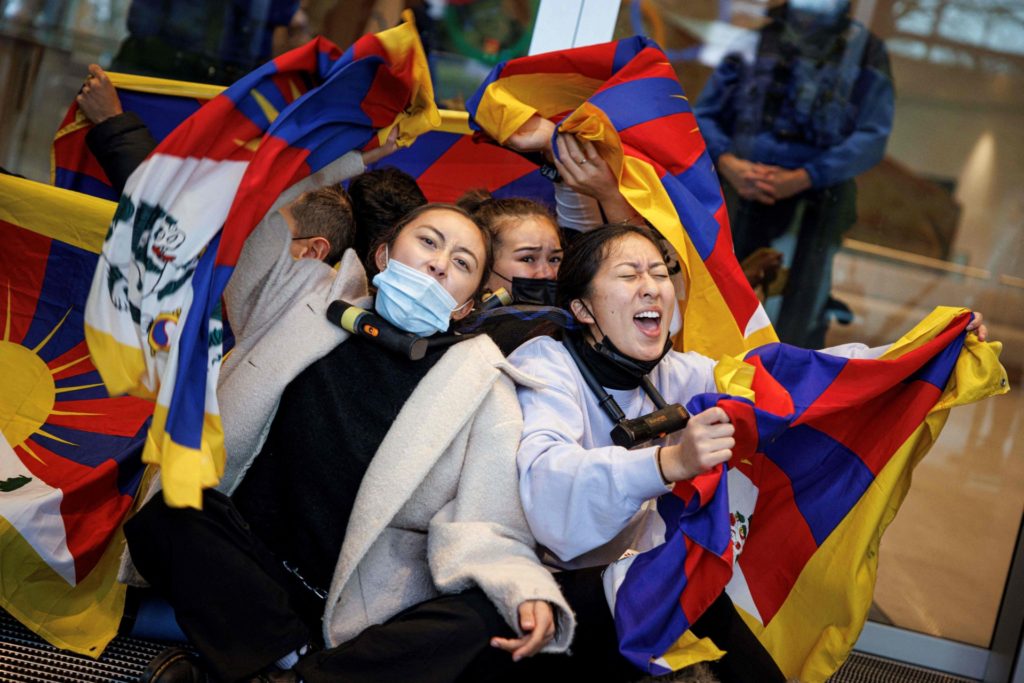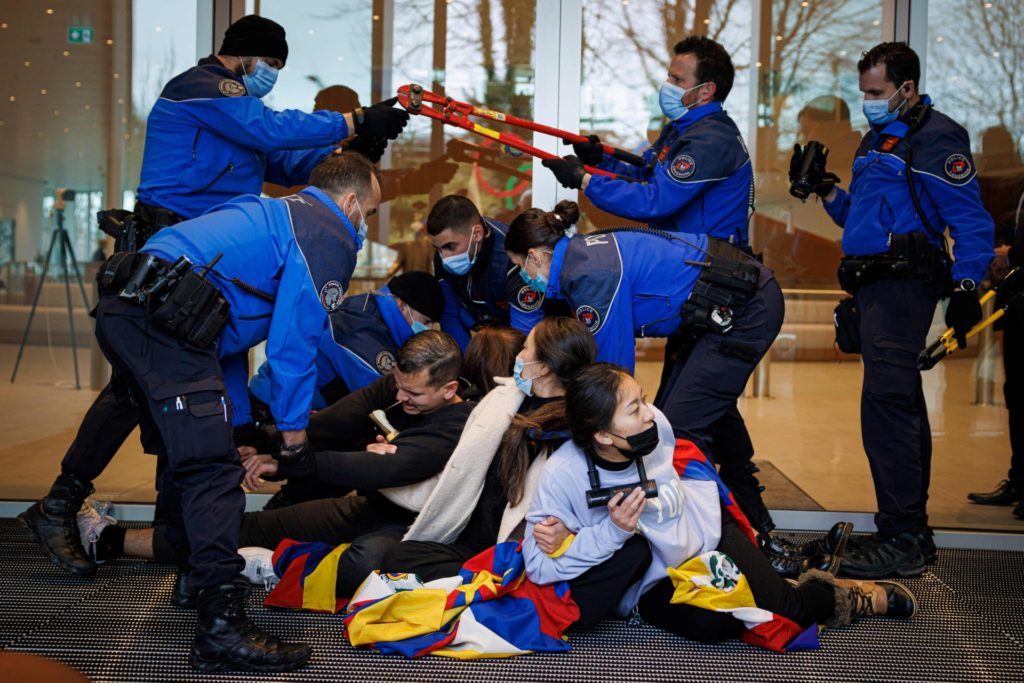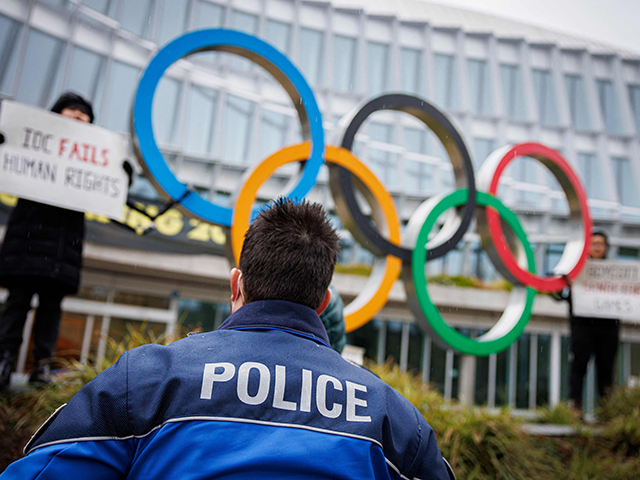Two Tibetans chained themselves to an Olympic rings display outside the headquarters of the International Olympic Committee (IOC) in Lausanne, Switzerland, on Saturday to protest the 2022 Olympic Winter Games, Reuters reported.
“Members of the Tibetan Youth Association in Europe (TYAE) and Students for a Free Tibet held a sit-in at the IOC building in Lausanne as officials gathered for a meeting,” according to the news agency.

Tibetan activists from the Students for a Free Tibet association, as they perform a sit in at the entrance of the International Olympic Committee (IOC) headquarters ahead of the February’s Beijing 2022 Winter Olympics, on December 11, 2021 in Lausanne. – Human rights campaigners and exiles accuses Beijing of religious repression and massively curtailing rights in Tibet. (Photo by VALENTIN FLAURAUD/AFP via Getty Images)
“The activists demanded countries withdraw from the event they have called the ‘Genocide Games,’ which they say are being used to burnish China’s reputation,” Reuters relayed.
“Two activists unfurled a banner over the entry to the building reading, ‘No Beijing 2022,’ while five students got inside the building and held a sit-in protest,” according to the report.
“By collaborating with China, the IOC is making itself an accomplice of the Chinese Communist Party’s crimes, which will be sports-washed by the Beijing Olympics,” a protester named Tenzing Dhokhar, who also serves as Campaigns Director of TYAE, told Reuters outside the IOC headquarters on December 11.

Policemen cut chains to remove Tibetan activists from the Students for a Free Tibet association, as they perform a sit-in at the entrance of the International Olympic Committee (IOC) headquarters ahead of the February’s Beijing 2022 Winter Olympics, on December 11, 2021 in Lausanne. – Human rights campaigners and exiles accuses Beijing of religious repression and massively curtailing rights in Tibet. (Photo by VALENTIN FLAURAUD/AFP via Getty Images)
The 2022 Olympic Winter Games are scheduled to take place in Beijing, China, from February 4 to February 20. Human rights activists and the victims of Chinese communism have urged the world to boycott the Games in protest against China’s lost list of human rights atrocities, at the top of which is the genocide of the Uyghur people of East Turkistan. Despite the calls, no country has committed to boycotting the Olympics.
The governments of a handful of Western nations recently announced a “diplomatic boycott” of the Games in which politicians do not attend the event. A “diplomatic boycott” is not a boycott because diplomats do not participate in the Olympics and their absence does not in any way affect the event. Beijing has further dismissed the “boycotts” as “political posturing” because China never invited the nations’ government officials to attend the Games.
Tibetans have similar grievances with the Chinese Communist Party as the Uyghurs. China seized control of Tibet in 1950 after the Chinese People’s Liberation Army (PLA) entered the region in what Beijing described as a “peaceful liberation.” The Communist Party wields a tremendous amount of control over the lives of Tibetans and the Tibetan region is currently one of China’s most restricted territories. The Dalai Lama, Tibet’s exiled spiritual leader, has described the Party’s practices in Tibet as a form of “cultural genocide.” The practices include a training camp model also deployed in Xinjiang by which the government detains Tibetans and forces them to undergo “vocational training” and political indoctrination. Camp detainees are transferred to work in factories across China upon “graduation,” including in Xinjiang. In both Tibet and Xinjiang, survivors and former employees of the detention centers allege to have suffered or witnessed forced labor and human rights abuses.

COMMENTS
Please let us know if you're having issues with commenting.